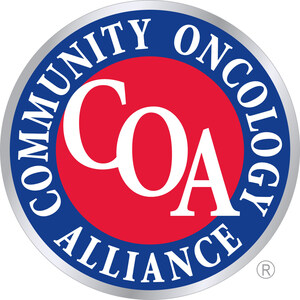Study: Medicare Covers Only Half the Cost of Administering Chemotherapy to Seniors with Cancer
Landmark Study Presented at Annual Community Oncology Conference
SCOTTSDALE, Ariz., Feb. 4 /PRNewswire/ -- A comprehensive study of the components of the delivery of modern-day cancer care in community oncology practices revealed that Medicare covers only 56% of the actual costs of administering chemotherapy and providing related infusion room services to seniors with cancer. The remaining costs -- for essential services provided such as treatment planning, care coordination, and follow-up care planning -- are not reimbursed by Medicare, causing many oncology practices to struggle to continue to provide care under the Medicare program.
The study will be presented at the fifth annual Community Oncology Conference, February 5-6, 2010 in Scottsdale, AZ. The conference attracts health care professionals from community settings, where 84% percent of the cancer care in this country is provided, ranging from private practice-based oncologists, hematologists, oncology nurses and pharmacists to practice administrators.
The study by Avalere Health, a strategic healthcare advisory firm, collected detailed qualitative and quantitative data from 76 community oncology practices across the nation, representing 499 oncologists, in order to quantify the full range of services performed by community oncology practices, including those currently reimbursed by Medicare and private insurers as well as many of the services that are unrecognized and thus uncompensated by payers. The study includes data regarding the time physicians and staff spend on each component of care, as well as financial information about the actual capital and expense costs necessary for operating a community oncology practice.
"These results are alarming, especially when one considers that about half of all cancer patients are Medicare patients," said David Eagle, M.D., vice president of COA and partner at Lake Norman Oncology in Mooresville, North Carolina. Dr. Eagle will be presenting the study results at the annual conference this weekend. He continued, "The study quantifies what we have known – that cuts in Medicare reimbursement have created a crisis in community cancer care that threatens the very existence of the system that treats four in five U.S. cancer patients."
In addition to underpayments for chemotherapy infusion-related services reported in the study, the average oncology practice reported annual bad debt of $500,178.
"Covering co-payments and coinsurance is harder for cancer patients than ever before," said Patrick Cobb, M.D., president of COA and managing partner of Hematology-Oncology Centers of the Northern Rockies in Billings, Montana. "Cancer treatments and medications are more expensive, requiring a larger percentage of patient income to meet their cost sharing responsibilities. As a result, many practices – who turn away patients only as a very last resort – are absorbing these unpaid costs, contributing to their precarious financial situations."
Medicare has already severely cut payments for cancer drug infusion room services — over 25% since 2004. In addition, the Centers for Medicare & Medicaid Services (CMS) will implement even more cuts, reducing payment for drug infusion room services an additional 5% annually, up to 20% by 2013. Other cuts have been made for cancer diagnostic imaging and physician consultation services. On top of oncology-specific cuts, there will be a 21% payment cut for all physicians' services starting in March 2010 if Congress does not act quickly to stop it.
"The situation is even more troubling when we consider that the Avalere study was conducted last year, before these year-over-year cuts to chemotherapy services payments," continued Dr. Cobb. "This study calculated that only 56% of infusion-related services are reimbursed by Medicare, which is already unsustainable for most oncology practices. But we are expecting even more cuts for chemotherapy services -- up to 20% in cuts by the year 2013. The full effect of these cuts means that Medicare will only reimburse for an even lower 45% of infusion-related cancer care costs."
Dr. Cobb concluded, "As a long-term solution, community oncologists have proposed specific solutions for addressing the insufficient Medicare payment system, and are working with Members of Congress in support of including these solutions in the current health care reform process."
About Community Oncology Alliance (COA)
COA is a non-profit organization dedicated solely to community oncology. COA was founded by community oncology to advocate for patients and providers in the community oncology setting, where 84 percent of Americans with cancer are treated. In only six years of existence, COA has mobilized community oncology to become more politically active, and increased awareness on Capitol Hill about the community cancer care delivery system. Additionally, COA has brought together community oncology practices from across the country to share information in order to enhance the effectiveness and efficiency of the cancer care they provide to their patients.
Currently, COA is working with the Congress in providing proactive solutions designed to protect the viability of the nation's cancer care delivery system and patients' access to quality, affordable cancer care. The cancer death rate in the U.S. has declined due to earlier detection, the quality of treatment, and the accessibility of cancer care. However, according to the American Cancer Society, men still have an approximately one in two lifetime risk of developing cancer, with a risk of one in three for women. For more information, please visit www.communityoncology.org.
SOURCE Community Oncology Alliance
WANT YOUR COMPANY'S NEWS FEATURED ON PRNEWSWIRE.COM?
Newsrooms &
Influencers
Digital Media
Outlets
Journalists
Opted In





Share this article